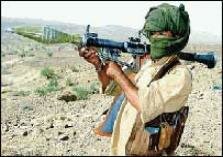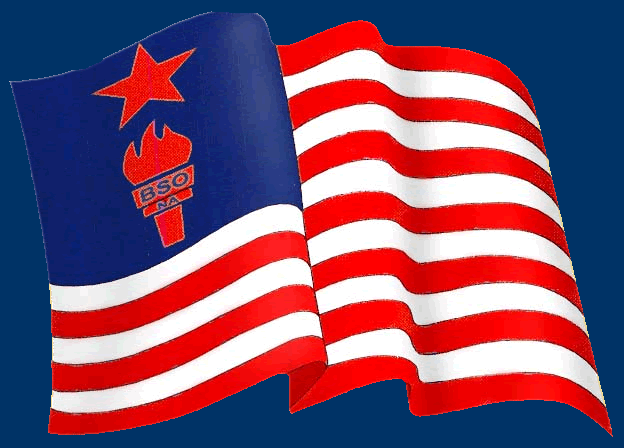| Baloch Society Of North America (BSO_NA) Baloch Society Of North America (BSO_NA) is Non-Profit Organization, working to unite and Organize all Baloch in North America, to expose the Occupation of our land (Balochistan) and exploitations of our resources by Pakistani and Iranian Governments, and to bring their Human Rights Violations in Balochistan into the world’s Notice. |
How serious is Baluch
insurgency?
G. S. BHARGAVA
April 16, 2007
American scholars critical, rightly, of General Pervez Musharraf’s half-hearted efforts to put down the al-Qaeda and
Taliban forces in the Waziristan area of north-west Pakistan, attribute the unabated tribal insurgency in Baluchistan
for it. According to U.S. Intelligence sources as many as six Pakistan army brigades or a quarter million regular
troops plus paramilitary forces are deployed in Baluchistan. The ‘Baluch Liberation Army’ waging guerrilla warfare
in the Kohlu Mountains and the surrounding areas is said to be giving the Pakistan army a good run for its money.
The Pakistan Human Rights Commission, bearing the stamp of its doughty leader, Asma Jehangir, has alleged
that Islamabad has been using US supplied Cobra helicopter gunships as well as US F-16 fighter planes against
Baluchi civilians in its indiscriminate attacks on the guerrillas. It also put fatal casualties at over 200 non-
combatants in recent weeks.
If the human rights activists expected the U.S. Government to be outraged by the ‘excesses’ of the Pakistan
army against Baluch insurgents they should have been disappointed, expectedly. Their appeals to the US
President had drawn a blank. Under-Secretary of State, Nicholas Burns, on a visit to Islamabad has washed
Washington’s hands of it, saying that it was Pakistan’s ‘internal matter.’
One is reminded of the caustic comment of another Pakistan military leader, Field Marshal Ayub Khan, in the
1960s that the US- gifted military hardware was not meant to be ‘kept in cotton wool’ when Pakistan’s security was
at stake. Ayub was reacting to Indian objections to Pakistan’s use of Patton tanks and Sabre jets in the 1965
border conflict with India.
American and other supporters of Baluch struggle for autonomy argue that the US has a “major strategic
stake in a peaceful accommodation between Islamabad and Baluch leaders.” But it does not seem that
Washington is inclined to heed such advice. Even when cross-border terrorism fuelled from Pakistan and
Pakistan-occupied Kashmir was raging in India the U.S. administration stood by General Musharraf as a crucial
ally in the war against the Taliban.
Both the earlier Democratic and the present Republican administrations in Washington have been so taken in by
General Musharraf’s volte face after 9/11 that they would not doubt the genuineness of the General’s ‘change of
heart.’
US might be thinking that it was tactically more useful to keep General Musharraf in the American camp rather than
provoke him to return to his earlier Taliban company. Not that he would do it, especially after the blunt American
warning that whoever was not with the US in the fight against terrorism would be taken to be on the other side.
Meanwhile, the Baluch leaders seem to have read the writing on the wall, that in a situation of virtual isolation they
should opt for autonomy within a multi-ethnic Pakistan rather than harp on secession which had always been a
pipe dream even when the Bugti tribesmen battling the Ayub regime harboured the idea.
It no doubt provided India with a brownie point in the war of words against Pakistan! The Baluch area is rich in oil
and other mineral resources, including natural gas, uranium and copper .So the Pakistan Government is rather
cagey about allowing greater autonomy to the State.
In the last forty odd years, the strategic importance of Baluchistan has grown perceptibly. China has built a
state- of- the- art port at Gwadar, close to the Strait of Hormuz, with a projected 27 berths. At the same time,
ethnic Baluch sentiment has been on the rise with Baluchis living in eastern Iran making common cause with
their fellow tribesmen across the Pakistan-Iran border.
There is also a nascent Baluch rebellion of sorts against the Mahmoud Ahmadinejad regime in Teheran.
Observers in Pakistan expect the US to involve itself in the Baluch imbroglio in the larger interests of
safeguarding American interests in the region, especially Iran.
For the record India has been ambivalent towards the Baluch aspirations for greater autonomy within Pakistan.
The days of vocal support to Baluch tribal revolt of the 1960’s are over. Still, Islamabad lodged a formal protest to
New Delhi recently alleging “moral and material” support to Baluch insurgents. India, for its part, denied the charge.
Interestingly, General Musharraf had readily allowed a jatha lead by former external affairs minister, Jaswant Singh
(of the BJP) to undertake a tour of Sindhi and Rajasthani pilgrim places deep inside Baluchistan in the last week
of January. Jaswant Singh and his companions visited the temple of their family deity of Hinglaj Devi at Hinglaj in
southern Baluchistan. In the course of their pilgrimage, conducted without slogans and flags, they passed through
Khokrapar, Chor, Mirpur Khas, Hyderabad (Sindh), etc. The famous Kalander Dargah, which figures in the popular
Sindhi prayer song, was also in their itinerary.
The ‘national’ newspapers in our country being so inward looking that they did not devote enough attention to the
visit of Jaswant Singh to a south Baluch shrine and the interest it evoked in Sindh and Baluchistan, not to mention
the border areas of Rajasthan.
The media is so obsessed with BJP baiting, while eulogising Sonia Gandhi’s ‘sacrifice, ‘that they have no eyes for
a grass-root level non-political event which stirred the peoples of our two countries deeply. To many of them it was
more interesting that Jaswant Singh did not pay obeisance at the Jinnah mausoleum in Karachi like his senior
colleague L.K. Advani a few months earlier. Even the Government’s willingness to extend up to Khwaja Moinuddin
Chishti’s Dargah in Ajmer the revived Khokrapar-Munabao (Sindh- Rajasthan) rail link did not sink in their minds.
insurgency?
G. S. BHARGAVA
April 16, 2007
American scholars critical, rightly, of General Pervez Musharraf’s half-hearted efforts to put down the al-Qaeda and
Taliban forces in the Waziristan area of north-west Pakistan, attribute the unabated tribal insurgency in Baluchistan
for it. According to U.S. Intelligence sources as many as six Pakistan army brigades or a quarter million regular
troops plus paramilitary forces are deployed in Baluchistan. The ‘Baluch Liberation Army’ waging guerrilla warfare
in the Kohlu Mountains and the surrounding areas is said to be giving the Pakistan army a good run for its money.
The Pakistan Human Rights Commission, bearing the stamp of its doughty leader, Asma Jehangir, has alleged
that Islamabad has been using US supplied Cobra helicopter gunships as well as US F-16 fighter planes against
Baluchi civilians in its indiscriminate attacks on the guerrillas. It also put fatal casualties at over 200 non-
combatants in recent weeks.
If the human rights activists expected the U.S. Government to be outraged by the ‘excesses’ of the Pakistan
army against Baluch insurgents they should have been disappointed, expectedly. Their appeals to the US
President had drawn a blank. Under-Secretary of State, Nicholas Burns, on a visit to Islamabad has washed
Washington’s hands of it, saying that it was Pakistan’s ‘internal matter.’
One is reminded of the caustic comment of another Pakistan military leader, Field Marshal Ayub Khan, in the
1960s that the US- gifted military hardware was not meant to be ‘kept in cotton wool’ when Pakistan’s security was
at stake. Ayub was reacting to Indian objections to Pakistan’s use of Patton tanks and Sabre jets in the 1965
border conflict with India.
American and other supporters of Baluch struggle for autonomy argue that the US has a “major strategic
stake in a peaceful accommodation between Islamabad and Baluch leaders.” But it does not seem that
Washington is inclined to heed such advice. Even when cross-border terrorism fuelled from Pakistan and
Pakistan-occupied Kashmir was raging in India the U.S. administration stood by General Musharraf as a crucial
ally in the war against the Taliban.
Both the earlier Democratic and the present Republican administrations in Washington have been so taken in by
General Musharraf’s volte face after 9/11 that they would not doubt the genuineness of the General’s ‘change of
heart.’
US might be thinking that it was tactically more useful to keep General Musharraf in the American camp rather than
provoke him to return to his earlier Taliban company. Not that he would do it, especially after the blunt American
warning that whoever was not with the US in the fight against terrorism would be taken to be on the other side.
Meanwhile, the Baluch leaders seem to have read the writing on the wall, that in a situation of virtual isolation they
should opt for autonomy within a multi-ethnic Pakistan rather than harp on secession which had always been a
pipe dream even when the Bugti tribesmen battling the Ayub regime harboured the idea.
It no doubt provided India with a brownie point in the war of words against Pakistan! The Baluch area is rich in oil
and other mineral resources, including natural gas, uranium and copper .So the Pakistan Government is rather
cagey about allowing greater autonomy to the State.
In the last forty odd years, the strategic importance of Baluchistan has grown perceptibly. China has built a
state- of- the- art port at Gwadar, close to the Strait of Hormuz, with a projected 27 berths. At the same time,
ethnic Baluch sentiment has been on the rise with Baluchis living in eastern Iran making common cause with
their fellow tribesmen across the Pakistan-Iran border.
There is also a nascent Baluch rebellion of sorts against the Mahmoud Ahmadinejad regime in Teheran.
Observers in Pakistan expect the US to involve itself in the Baluch imbroglio in the larger interests of
safeguarding American interests in the region, especially Iran.
For the record India has been ambivalent towards the Baluch aspirations for greater autonomy within Pakistan.
The days of vocal support to Baluch tribal revolt of the 1960’s are over. Still, Islamabad lodged a formal protest to
New Delhi recently alleging “moral and material” support to Baluch insurgents. India, for its part, denied the charge.
Interestingly, General Musharraf had readily allowed a jatha lead by former external affairs minister, Jaswant Singh
(of the BJP) to undertake a tour of Sindhi and Rajasthani pilgrim places deep inside Baluchistan in the last week
of January. Jaswant Singh and his companions visited the temple of their family deity of Hinglaj Devi at Hinglaj in
southern Baluchistan. In the course of their pilgrimage, conducted without slogans and flags, they passed through
Khokrapar, Chor, Mirpur Khas, Hyderabad (Sindh), etc. The famous Kalander Dargah, which figures in the popular
Sindhi prayer song, was also in their itinerary.
The ‘national’ newspapers in our country being so inward looking that they did not devote enough attention to the
visit of Jaswant Singh to a south Baluch shrine and the interest it evoked in Sindh and Baluchistan, not to mention
the border areas of Rajasthan.
The media is so obsessed with BJP baiting, while eulogising Sonia Gandhi’s ‘sacrifice, ‘that they have no eyes for
a grass-root level non-political event which stirred the peoples of our two countries deeply. To many of them it was
more interesting that Jaswant Singh did not pay obeisance at the Jinnah mausoleum in Karachi like his senior
colleague L.K. Advani a few months earlier. Even the Government’s willingness to extend up to Khwaja Moinuddin
Chishti’s Dargah in Ajmer the revived Khokrapar-Munabao (Sindh- Rajasthan) rail link did not sink in their minds.

Photo: A Baloch freedom Fighter

